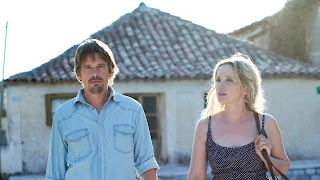I have made, in all these years, just one exception (for the publication of my brother’s last novel). But today, I am about to add a second.
The reason is simple: today is a very special person’s very special birthday.
When I watched Frances Ha, some days ago, there was an interesting scene.
Frances, who is about to go to Paris for the first time in her life, asks to some friends she’s having dinner with: "Is Paris the city with that museum made of funny tubes?"
Yes, Paris actually is the city with that very weird museum, and I can tell you that those funny tubes also happened to have changed my life for good.
The two architects behind those mad tubes are in fact my boss and the man who, of all the many fascinating, amazing, inspiring people I have met through my job, is without doubt the most fascinating, amazing and inspiring of all.
His name is Richard Rogers (Lord Richard Rogers, to be precise), who turns 80 today, and I have decided to use my blog to publicly declare all my love to him.
First of all, Richard looks so young to me that he could easily be turning 20, today.
I LOVE Richard because he is generous, genuinely interested in other people, curious, funny, gentle, really smart, incredibly handsome, super cool, super stylish (oh, the way he dresses! oh, these wonderful bright colours he colours his - and ours - life with!) and he is even sexier than Michael Fassbender! Look:
Happy Birthday, Richard, e cento di questi giorni!!!
Your biggest fan,
Zazie
Ps If you happen to be in London between today and October 13, don’t miss the exhibition that the Royal Academy of Arts dedicates to Richard’s works: Richard Rogers – Inside Out
Simply unmissable!

















.jpg)




